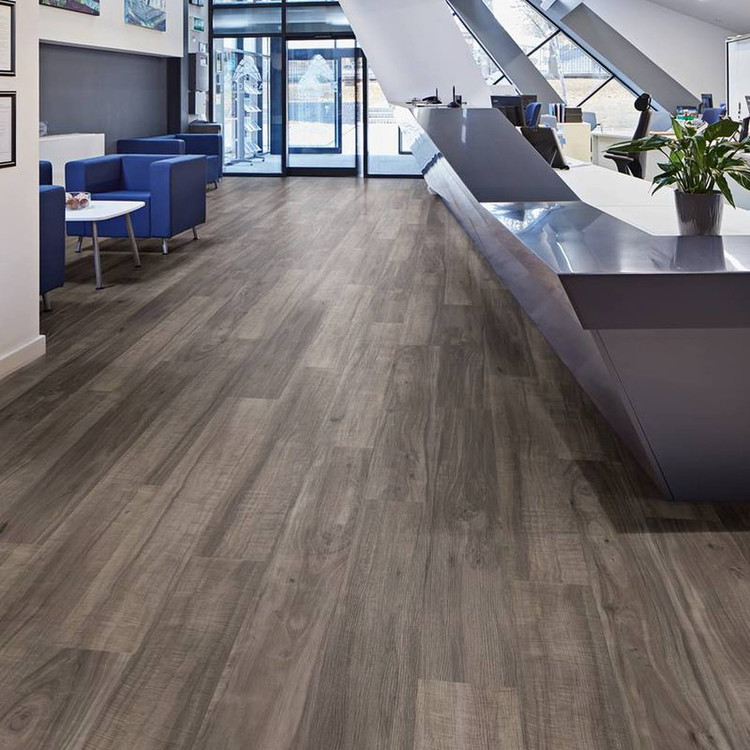Is Waterproof Flooring Actually Waterproof?
Posted by Johnny Holbert on 31st Jan 2023
Waterproof Floors: Truth or Myth?
What Is Actually Covered In The Warranty?
Its common thought to use the expression waterproof, when referring to rubber products such as tires, and awnings. But waterproof flooring? Is there such a thing? Can it be true that water can't deteriorate the product? When investigating whether or not a floor can be waterproof, we must examine 2 things, the material that the product consist of, and the manufacturers definition of waterproof in the warranty. First lets examine the material that these products are produced with. It goes without saying, ceramic and porcelain tile are considered, and will always be waterproof flooring. If you can water-log tile, you've got major problems beyond water.
The greatest claim on waterproof flooring was by LVT and LVP manufacturers during the economically changing WPC movement. WPC is a type of luxury vinyl tile or plank that has a wood and plastic core, mixed together to be both pliable and sturdy. Hence the "W" and "P" in WPC, which stands for "wood plastic composite" During this movement, manufacturers made claims of having a waterproof warranty on WPC products. You have to be careful when ordering products just for their waterproof claims. Though the WPC is very versatile in both scratch resistance and its ability to repel water, its not completely waterproof to the maximum of a flooded floor. All synthetic products contain glue which can breakdown when submerged in water. Also, you have to keep in mind the Wood composite. I don't care how you break it down, wood will in some time or another, break down with exposure to long instances of water. Then came issues with the WPC core and water, so the Rigid Core product took the reigns, which took the "w" out, and just moved to a plastic core. Though there is glue to press the virgin vinyl with the plastic backing, its not enough to break loose when exposed to water. But, temperature is the biggest advocate to destroying ANY flooring product. Too much of swift temperature increase or decrease will cause the product to expand and contract too quickly, which will cause the top wear layer to tear away from the core, causing lip lifting and separation. Keep in mind that a quick spread of water, naturally changes the core temperature quickly. This could result in the premature death of your floor. My opinion is that rigid core LVT and LVP products are by far the safest and most affordable options for basements and high traffic, more moist conditions like those found in Florida and other lower-lying areas below or close to sea level.
Once luxury vinyl products claimed waterproof, laminate flooring suffered in sales. Since both are inexpensive flooring options, the waterproof terms for LVP make it more appealing to home owners. So, manufacturers of laminate products have introduced waterproof, or water resistant laminate flooring. But you really have to read the small print on these. First, laminates are made of finely, ground chunks of wood, called fiberboard. One must look at the warranty and the installation instructions which most often only warrant the flooring as part of an installation system, precisely accomplished using their method. This is understandable but all consumers have to realize that you cant throw flooring down and expect it to hold up when water hits it, especially when it comes to laminate.
If you're a consumer looking for waterproof flooring, I recommend that all the warranty wording is read carefully before making a purchase. Some jobsites are more prone to damage than others. You can also call one of sales reps at Georgia Carpet Industries. We are a wholesale waterproof LVP and laminate provider. I can assure you that all your questions or concerns will be answered in a professional, knowledgeable way. As always, Buy Where The Dealers Buy waterproof flooring, Georgia Carpet Industries in the flooring capital of the nation, Dalton Georgia.



